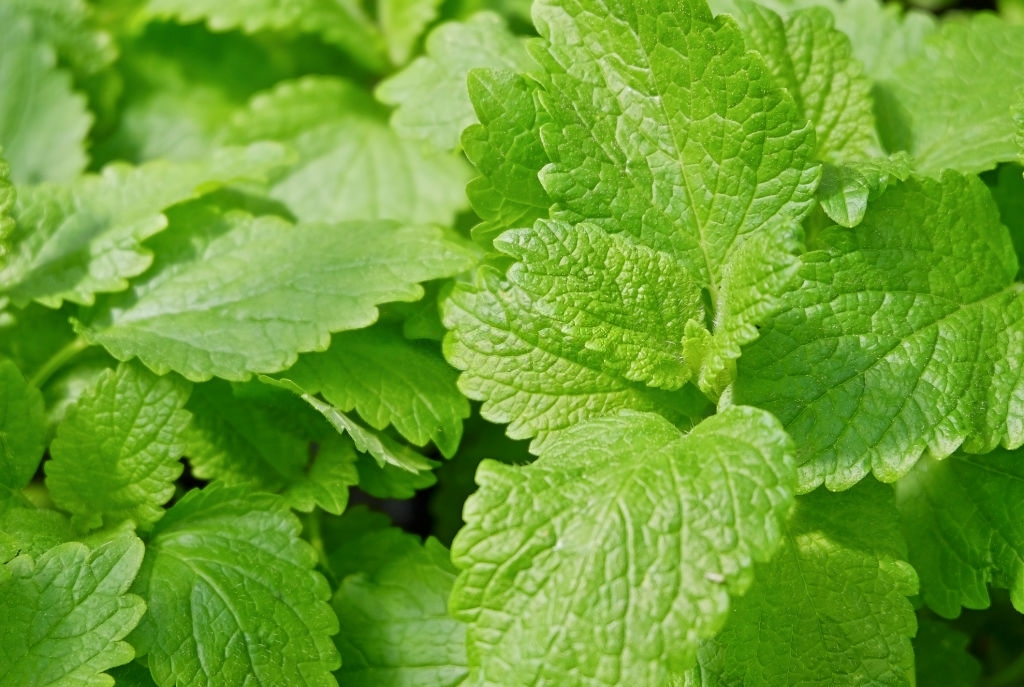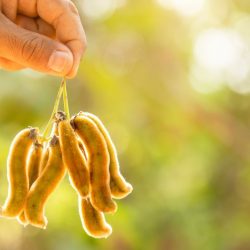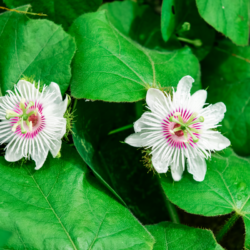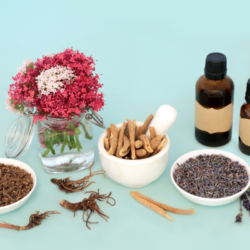Since Antiquity, men have made lemon balm travel across the Mediterranean basin so that it will eventually find its place in the pharmacopoeias of various places around the globe . Spreading from east to west, it began to spread very early in Asia Minor, was subsequently found to grow in Spain around 960, then across the Alps through the Benedictines.
A little history
Among the ancient Greeks, it was called melissophyllon . There is no doubt that the first person to whom we owe the primomention of this plant in his treatise is Theophrastus . Nicandre de Colophon presents the simple in Les Thériaques and Les Alexipharmaques , thus offering us the perfect antidote against scorpion and mad dog bites . This indication was taken up by Dioscorides , to which he adds several properties such as diuretic, emmenagogue or even hypnotic. The Greek doctor also used it to treat lung diseases as well as various pains .
Beyond the remains of the smoldering ruins of the Roman Empire and late Antiquity, a Syrian doctor, known as Serapion , seems to be one of the pioneers to attribute to lemon balm its virtue of “cordial”. This medical term has been abandoned over time and will be re-apprehended using the following definition: a cordial is a drug that restores the function of the heart (from the Latin cor , “heart”). Therefore, Serapion thinks lemon balm can make your mood good (the term antidepressant hasn’t been coined yet). He writes: “Lemon balm gladdens the heart, helps digestion, opens the ducts of the brain, strengthens the failing or weakened heart, mainly nocturnal lapses, palpitations and removes all annoying imaginations from the brain, mainly which arise from mood. melancholy”.
A century and a half later, it was the turn of another Arab doctor, all the more famous, Avicenna , to help build the reputation of lemon balm. For him, this plant is indeed a good medicine for the heart, which can dispel melancholic “vapors”. The central Middle Ages abound with innovative ideas in Avicenna ; however, this historical period is just a repetition of the words of ancient Greek and Roman physicians.
What are the main pharmacological properties of lemon balm leaves?
Sedative and hypnotic action on the central nervous system:
In humans, in patients suffering from mild to moderate anxiety , the plant exerts an anxiolytic activity , and improves the quality and duration of sleep. It exerts in vivo a peripheral analgesic activity . It thus promotes attention as well as calm in humans.
In a double-blind, randomized, placebo-controlled trial conducted in 2015 with 55 volunteers for 14 days, taking lemon balm leaf extract twice daily significantly reduced heart palpitations and anxiety, without side effects. .
Lemon balm displaces nicotinic and muscarinic receptors in human cerebral cortex cell membrane homogenates in a dose dependent manner. Moreover, in vitro , the acidic fraction of M. officinalis , whose neuroprotective effect appears to be more powerful than that of the non-acidic fraction, protects the neurons of cerebellar granules in culture, against the apoptosis induced by the β-amyloid peptide. and with respect to oxidative stress . These data could explain the plant’s ability to slow the decline of cognitive functions, as shown in a double-blind, randomized, placebo-controlled trial conducted in 2003 for 4 months with 42 patients with mild to moderate Alzheimer’s disease .
The anxiolytic properties of lemon balm are linked to a potentiation action of GABA; as appears to show the in vitro inhibitory activity of a methanolic extract of lemon balm on GABA transamine (GABA-T), an enzyme target of therapies for anxiety, epilepsy and other neurological disorders. The active ingredients of lemon balm responsible for this effect are rosmarinic acid and the plant’s triterpenes.
Antispasmodic action:
Total lemon balm extract supplemented with usual treatments in people with irritable bowel syndrome has been shown to reduce the frequency and severity of abdominal pain, as well as bloating.
A randomized, double-blind, placebo-controlled trial of 100 high school girls from 2013 to 2014 showed that taking lemon balm significantly reduced the intensity of PMS symptoms .
A 2017 double-blind clinical trial indicates that taking lemon balm extract significantly reduces dysmenorrhea, in relation to the antispasmodic activity of the plant.
Protective action of the gastrointestinal system:
Lemon balm protects in vivo against ulcers by increasing the secretion of mucins and the release of prostaglandins E2, and by decreasing the release of leukotrienes.
Lipid-lowering action:
Lemon balm extract has also been identified as having lipid-lowering action by reducing total cholesterol and serum total lipid levels, as well as decreasing lipid peroxidation and increasing hepatic glutathione levels. An ability to modulate weight gain, body fat and lipid metabolism has also been described.
Antimicrobial and antiparasitic action:
In vitro , lemon balm is active against a large number of bacteria (such as shigella), yeasts, fungi ( Trichophyton ) and parasites ( Leishmania major and Trypanosoma brucei ). Lemon balm also exerts an antiviral effect against H erpes simplex in vitro , especially type 2.
Other properties:
-
Antioxidant activity:
This property, demonstrated in vitro , is mainly due to the presence of rosmarinic acid and flavonoid. A protective effect of Melissa officinalis extract against the oxidative stress induced by hydrogen peroxide (H2O2) has in particular been shown in vitro on human vascular endothelial cells.
Likewise, it has been observed that the regular consumption of an infused lemon balm reduces circulating markers of oxidative stress, and stimulates the antioxidant defense systems in hospital personnel exposed to radiation in a radiology department.
Are there any precautions for use with lemon balm?
Contraindications:
- Contraindicated in pregnant women as well as in children and adolescents under 18 years old.
- Contraindication in people with glaucoma or Graves’ disease.
Precautions for use:
- Like any sedative plant, depending on the dosage and the sensitivity of the person, lemon balm could cause a decrease in alertness, and be dangerous when using machines or driving vehicles.
- An increase in intraocular pressure has been reported. Likewise, a slowing down of the thyroid hormone or a decrease in the effectiveness of substitution treatments has been reported. In fact, medical monitoring is recommended in these situations when using lemon balm.
Drugs interactions :
- Due to its sedative and antispasmodic action, lemon balm can amplify the effects of many psychotropic drugs or drugs acting on the central nervous system, such as sleeping pills, antidepressants, antipsychotic neuroleptics, cough suppressants (low in codeine or pholcodine) and analgesics containing an opiate derivative (codeine, tramadol, morphine). A medical follow-up is necessary in the event of association.
- Risk of drug interactions with barbiturates, treatment of glaucoma, thyroid hormone substitutes, IRS (fluoxetine) …
How to take lemon balm and in what dosage?
Dry form:
- As a food supplement, in the form of a fresh plant extract standardized in capsules .
Liquid form:
- Standardized fluid extract of fresh plant : 5 to 10 ml per day in a glass of water.
- Full suspension of fresh plant : 5 to 10 ml per day in water.
- Hydroalcoholic extract : 20 to 25 drops 2 to 3 times a day in a glass of water.
- Herbal tea : 1.5 to 4.5 g of lemon balm leaves in 150 ml of boiling water, to infuse 5 to 10 minutes, 1 cup 2 to 3 times a day.
Medical bibliographic sources and clinical trials :
-
Akbarzadeh M. et al. Effect of Melissa officinalis Capsule on the Intensity of Premenstrual Syndrome Symptoms in High School Girl Students; Nursing and Midwifery Studies, 2015
-
Mirabi P. et al., The Effect of Melissa Officinalis Extract on the Severity of Primary Dysmenorrha Iran; J Pharm Res., 2017
-
Alijaniha F. et al. Heart palpitation relief with melissa officinalis leaf extract : double blind, randomized, placebo controlled trial of efficacy and safety; J Ethnopharmacol., 2015
-
Shakeri A. et al., Melissa officinalis L. A review of its traditional uses, phytochemistry and pharmacology, J Ethnopharmacol., 2016
-
Soodi M. et al., Melissa officinalis Acidic Fraction Protects Cultured Cerebellar Granule Neurond Against Beta Amyloid-Induced Apoptosis and Oxidative Stress; Cell J., 2017
-
Kennedy D.O. et al., Modulation of mood and cognitive performance following acute administration of Melissa officinalis (lemon balm); Pharmacol Biochem Behav., 2002
-
Akhondzadeh S. et al., Melissa officinalis extract in the treatment of patients with mild to moderate Alzheimer’s desease ; a double blind, randomised, placebo controlled trial, J Neurol Neurosurg Psychiatry, 2003
-
Wake G. et al., CNS acetylcholine receptor activity in European medicinal plants traditionally used to improve failing memory; J Ethnopharmacol., 2000
-
Vejdani R. et al. The efficacy of an herbal medicine, Carmint, on the relief of abdominal pain bloating in patients with irritable bowel syndrome ; a pilot study, Dig Dis Sci., 2006
-
Larrondo J.V. et al., Antimicrobial activity of essences from libiates, Microbios., 1995
-
Mikus J. et al., In vitro effect of essential oils and isolated mono-and sesquiterpenes on Leishmania major and Trypanosoma Brucei; Planta Med., 2000
-
Astani A. et al., Melissa officinalis extract inhibits attachment of herpes simplex virus in vitro, Chemotherapy, 2012
-
Mazzanti G. et al., Inhibitory activity of Melissa officinalis L. extract in Herpes simplex virus type 2 replication; Nat Prod Res., 2008
-
Lamaison J.L. et al., [Medicinal Lamiaceae with antioxidant properties, a potential source of rosmarinic acid], Pharm Acta Helv., 1991
-
Zeraatpishe A. et al. Effects of Melissa officinalis L. on oxidative status and DNA damage in subjects exposed to long-term low-dose ionizing radiation; Toxicol Ind Health, 2011
-
Safaeian L. et al., Protective effect of Melissa officinalis extract against H2O2-induced oxidative stress in human vascular endothelial cells; Res Pharm Sci., 2016





